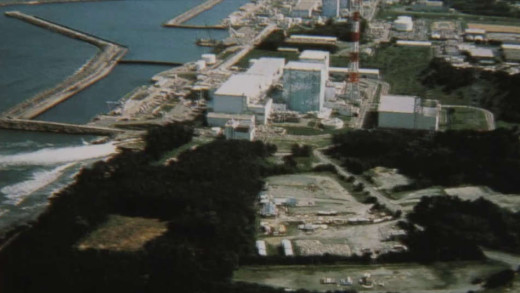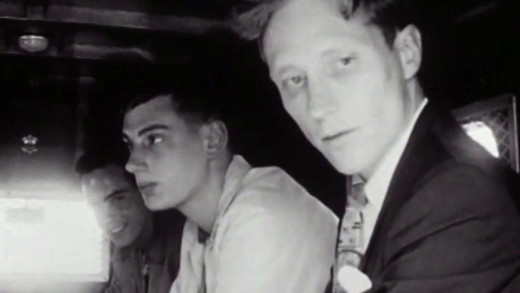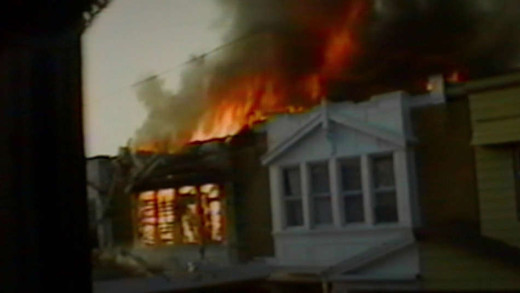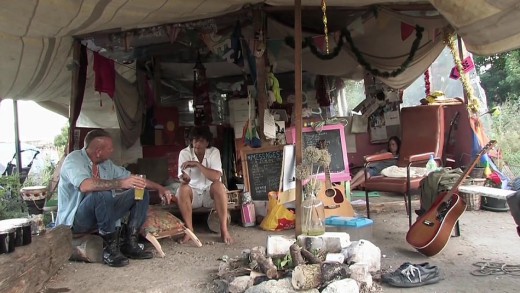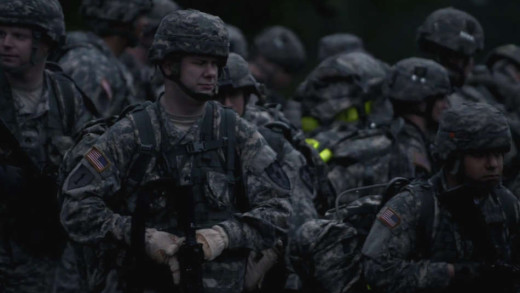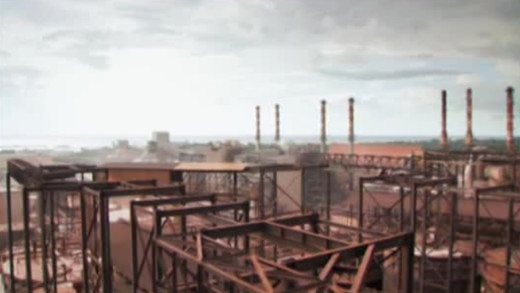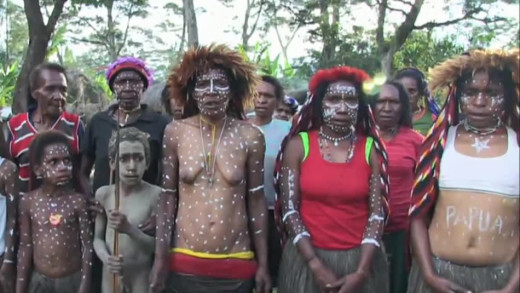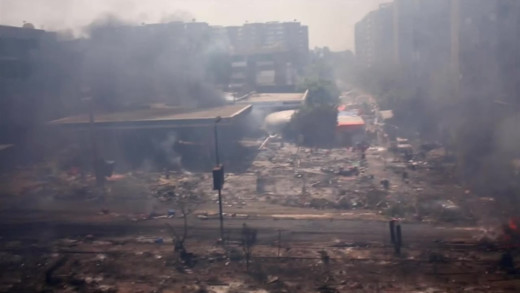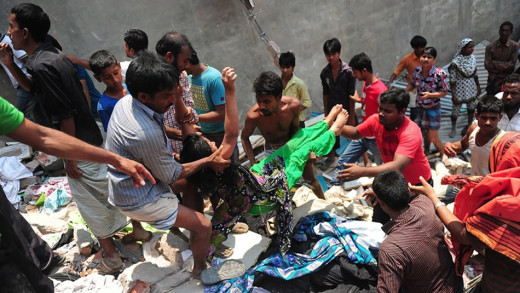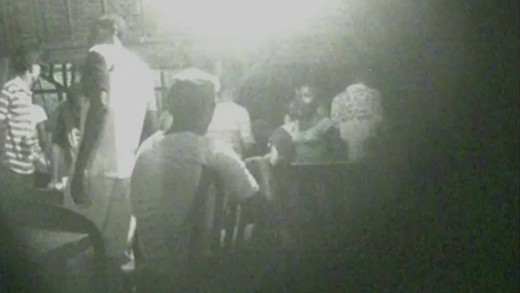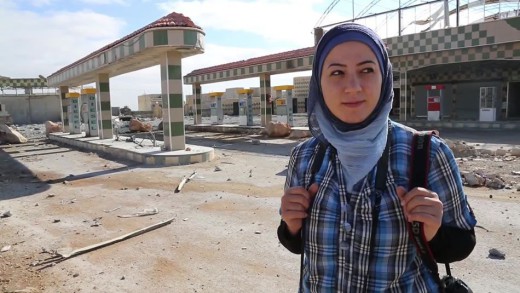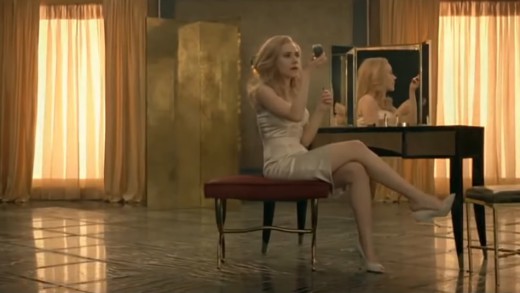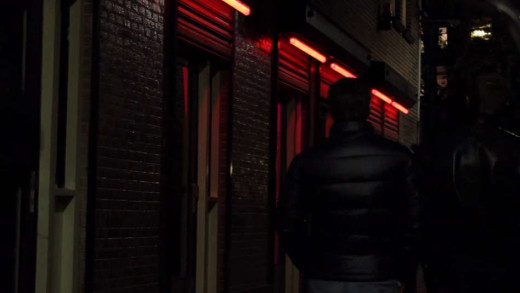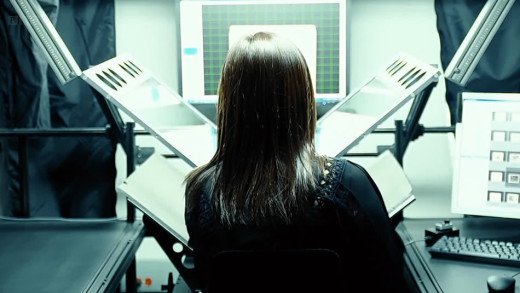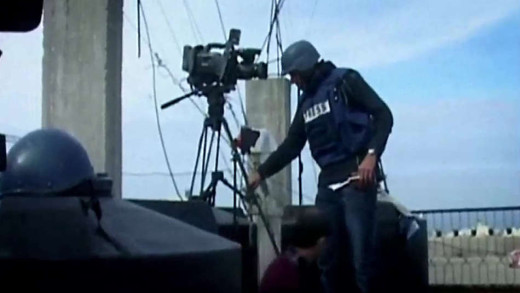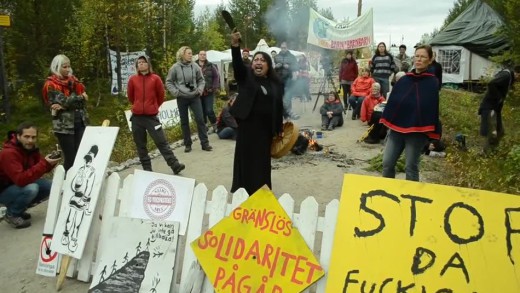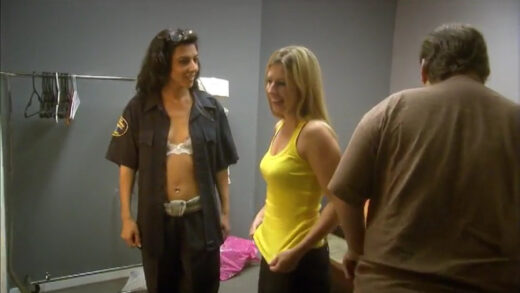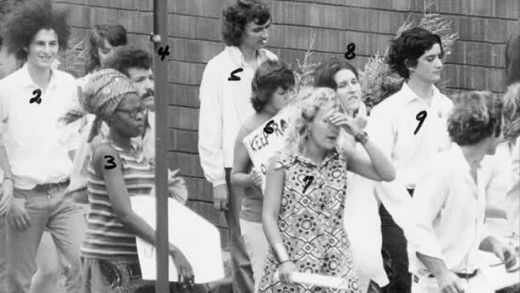Salmon Confidential follows renowned biologist Alexandra Morton as she finds that wild salmon are testing positive for dangerous European salmon viruses associated with industrial salmon farming worldwide, and then, how a chain of events is set off by the Canadian government to suppress the findings. Scientists are gagged, research suppressed, evidence not allowed. With the industrial fish farms having moved into Morton's neighbourhood in the late 1980s, since then, there has been a serious decline in wild salmon in the region. So, tracking her findings, the film follows Morton and her team as they move from courtrooms, to Canada's most remote rivers, Vancouver grocery stores and sushi restaurants, providing insights into the workings of government agencies tasked with managing the 'safety of fish and food supply,' that always seem to put industry and the needs of corporations over the natural world, time and time again. Salmon Confidential becomes a call to action to help save the wild salmon from these atrocities, before they're completely wiped out forever.
On 11th March 2011, a huge tsunami, triggered by an 8.9 magnitude earthquake, hits Japan. It cripples the Fukushima Daiichi nuclear power plant, releasing radiation, and turning the residents of Futaba into nuclear refugees. The devastation experienced by the town--dead livestock, crops abandoned, homes destroyed--was infinitely worse than anything reported by the newspapers. A year later, many refugees are still unable to return to homes that will be contaminated for many hundreds of years. The irony of this disaster occurring in a nation that experienced two nuclear bombs is not lost on the victims who poignantly question their responsibility for striking a Faustian bargain with nuclear power. Nuclear Nation examines the tragedy of Fukushima, and also whether it could one day be replicated on a grand scale.
White Like Me
White Like Me, based on the work of acclaimed anti-racist educator and author Tim Wise, explores race and racism in the United States through the lens of whiteness and white privilege. In a stunning reassessment of the American ideal of meritocracy and claims that we've entered a post-racial society, Wise offers a fascinating look back at the race-based white entitlement programs that built the American middle class, and argues that our failure as a society to come to terms with this legacy of white privilege continues to perpetuate racial inequality and race-driven political resentments today.
Let the Fire Burn documents the conflict of the City of Philadelphia and the Black Liberation organisation MOVE, that led to a disastrously violent confrontation in 1985. MOVE was originally established as a "back to nature" movement that practised green methods, and in May 1985, the Philadelphia Police Department decided to take action to evict the group from their row house at 6221 Osage Avenue. When gunfire broke out and tear gas was not enough to pull the MOVE members out of the house, the police decided to drop explosives on the house. A fire soon began to blaze, endangering the several children now trapped inside the house. In a controversial decision, the police opted to let the fire burn, resulting in the destruction of over 60 homes and the death of five children and six adults. Eleven people died in the resulting fire, and more than 250 people in the neighbourhood were left homeless. Ramona Africa, one of the two survivors, said that police fired at those trying to escape. The investigation commission that followed found that city leaders and law enforcement had acted negligently, but no criminal charges were filed.
Two years before the Occupy movement sprang forth in New York, a small group of land-rights activists occupied a piece of disused land in west London to create an "alternative model of moneyless, sustainable living" which they labelled, the Eco-Village. Echoing the dynamics of hippy communes in the United States decades earlier, Grasp the Nettle follows the often bewildering and even amusing actions of this group through many moments of idyllic beauty, as they use local trees and recycled rubbish to build small homes, go dumpster diving, build a manually operated shower and compost toilet, create a local seed bank, and help distribute dumpstered sandwiches to the city's homeless. But the Eco-Village quickly becomes something other than just an idealistic experiment in political protest. It begins to attract vulnerable people who already live on the margins of society and need help: the homeless, the unemployed, alcoholics, the mentally ill. Some of them are invited to stay, but others cause a ruckus and harm the group. Tensions spark as the community grapples to deal with the increasing chaos while trying to stave off the fast-approaching prospect of eviction, through the ideologies of withdrawal, dropping out, freemanism and spirtuality. Grasp the Nettle is hence a valuable reflection of the efficacy of this type of Wandervogel-style activism, where lack of goals and support infrastructure, a diverse array of internal conflicts and horizontal hostility can be the ultimate undoing of idealistic and much-needed political resistance movements.
The Kill Team
The Kill Team profiles four young American men, who referred to themselves as the "Kill Team," that carried out a string of war crimes in 2010, during the United States' invasion of Afghanistan, systematically murdering Afghan citizens. The film focuses on Private Adam Winfield who attempted, with the help of his father, to alert the military to the murders his platoon was committing. His pleas went unheeded. Faced with threats to his life from superior officers and other members of the military, Winfield makes a split-second decision that changes his life forever. The Kill Team follows Winfield and his family through the wartime events and legal proceedings that follow, interspersed with interviews of the other soldiers involved, and video footage from Afghanistan, revealing first-hand revelations of a war culture rooted in hatred, social pressure, and sociopathy.
Aluminium is everywhere—beer cans, tinned food, cooking pans, computers, pens, cosmetics; and many medications, including most vaccinations. Though what do we know about this material? The Age of Aluminium profiles people whose health has been seriously impacted by unwitting exposure to aluminium; along with research exploring how aluminium as a known neurotoxin relates to the growing epidemic of chronic illnesses and disabilities such as breast cancer, Alzheimer’s disease, allergies, and autism. Aluminium mining and manufacturing have also created cataclysmic environmental problems in several parts of the world, as we see the devastating effects of aluminium mining in South America, and environmental disasters in Hungary and the UK. What are we doing with this material? And what can we do now to avoid the continued impacts on our lives and the natural world?
The Secret of the Seven Sisters is a four-part series examining the rise of a powerful cartel of seven companies that control the world's oil supply. The 'seven sisters' comprises Anglo-Persian Oil Company (now BP); Gulf Oil, Standard Oil of California (SoCal) and Texaco (now Chevron); Royal Dutch Shell; Standard Oil of New Jersey (Esso) and Standard Oil Company of New York (Socony), (now ExxonMobil). Prior to the oil crisis of 1973, the Seven Sisters controlled around 85% of the world's petroleum reserves, but in recent decades the dominance of the companies and their successors has declined. This series is about the power of oil, the conspiracy of business, and the control that oil provides the few...
Goodbye Indonesia investigates one of the world's most forgotten conflicts--the West Papuan struggle for independence. When the Dutch decolonised their empire after the Second World War, they handed it all to the emergent country of Indonesia--all except the territory of West Papua, which forms one half of New Guinea, the second largest island on Earth. This remarkable landmass split neatly by colonial powers into West Papua and Papua New Guinea, is like few other places in the world...
Less than three years after a popular uprising that led to President Hosni Mubarak's ousting, and just one year after Egypt's first elections, the elected government has been overthrown and the Egyptian military is running the state. And the Muslim Brotherhood—the secretive, long-outlawed Islamist group that came out of the shadows to win the presidency in June 2012—is once again being 'driven underground.' Were the Brothers ever really in charge? Or was the Egyptian deep state—the embedded remnants of Mubarak's police force, Supreme Court and, most of all, military—in control all along? In Egypt in Crisis, we go inside the Egyptian revolution, tracing how what began as a youth movement to topple a dictator evolved into an opportunity for the Muslim Brotherhood to seemingly find the political foothold it had sought for decades—and then why it all fell apart. With Egypt's hopes for democracy in tatters, and the military-led government violently cracking down, what will happen next?
Fashion Victims looks at the real cost of cheap clothes from the conditions of sweat shops in Bangladesh. On 24th April, 2013 more than a thousand people were killed when an eight storey building collapsed in the heart of Bangladesh's capital, Dhaka. The collapse of Rana Plaza turned the world's attention to the shocking conditions workers in the country's clothing industry are forced to endure. In recent years, Australian companies have flooded into Bangladesh to take advantage of lax labour laws and the lowest wages in the world, paid to the predominantly young, female workers in the factories.
Using undercover filming, Sex and Survival in Madagascar exposes the booming child sex trade of the 21st Century. In the hub of Madagascar, one of the world's poorest countries, prostitution is rampant and seen as an unavoidable means of survival. The film shows the complicity and complacency of authorities that do not act to stop this terror, and so the acts of resistance against sex slavery are carried out by the children themselves.
Chemical flame retardants are everywhere--in our furniture, our homes, our bodies. But do they work as promised? And are they making us sick? The three chemical companies producing flame retardants would prefer that we not ask these questions, and they've spent millions of dollars on lobbyists, publicists and influencers to ensure that we don't. Toxic Hot Seat wades through the mess to piece together an intricate story of manipulation that details how Big Tobacco skillfully convinced fire safety officials to back a standard that, in effect, requires all furniture to be filled with toxic chemicals...
Not Anymore: A Story of Revolution is a short film about the Syrian struggle for freedom as experienced by a 32 year old rebel commander, Mowya; and a 24 year old female journalist, Nour; in Aleppo, Syria. The film shows why Syrians are fighting for their freedom, told through the emotional words of two powerful characters whose lives have been torn apart by war.
InRealLife
InRealLife asks: What exactly is the Internet and what is it doing to our children? Taking us on a journey ranging from the bedrooms of British teenagers to the explosive world of Silicon Valley, filmmaker Beeban Kidron suggests that rather than the promise of free and open connectivity, young people are increasingly ensnared in a commercial world. And as this is explained, InRealLife asks if we can afford to stand by while our children, trapped in their 24/7 connectivity, are being outsourced to the web.
The Society of the Spectacle is a film based on the 1967 book of the same name by French political theorist and philosopher, Guy Debord. The work traces the development of modern society, in which Debord argues that authentic social life has been replaced with representations, and that the history of social life can be understood as "the decline of being into having, and having into merely appearing." This emerges from and gives rise to a pervasive and all encompassing spectacle in which relations between commodities have supplanted relations between people, in which "passive identification with the spectacle supplants genuine activity." The film weaves the text of the original book with modern-day imagery, illustrating many elements of the spectacle, including that "the spectacle is not a collection of images, rather, it is a social relation among people, mediated by images." This makes the material hard to decipher at times, especially with conflicting subtitles between languages: but this is part of Debord's goal, to "problematise reception" and force the viewer to be active rather than passive. In addition, the words of some of the authors are "détourned" (hijacked) through deliberate misquoting. The result is a foundational work on the concept of the spectacle and its characteristics, to encourage critical thinking, to build and extrapolate critiques to apply to the wider social scale.
As nations around the globe attempt to fight sex trafficking, many consider legalising prostitution. Two filmmakers travel across ten countries to explore the issue, attempting to answer the question: "How can we prevent sexual exploitation before it happens in the first place?" Though governments are getting better at prosecuting traffickers and providing aftercare to victims, it is time we begin to ask the question of what lies at the root.
In 2002, quietly and behind closed doors, the Internet giant Google began to scan millions of books in an effort to create a privatised giant global library, containing every book in existence. Not only this, but they claimed they had an even greater purpose--to create a higher form of intelligence, something that HG Wells had predicted in his 1937 essay "World Brain". Working with the world’s most prestigious libraries, Google was said to be reinventing the limits of copyright in the name of free access to anyone, anywhere. But what can possibly be wrong with this picture? As Google and the World Brain reveals, a whole lot...
The Tax Free Tour travels the globe to expose the workings of offshore tax havens and the elite banking systems of the world's billionaires which operate in extreme secrecy. Using examples from multi-national corporations such as Apple Computer and Starbucks, the film traces sizeable capital streams that travel the world literally in milliseconds--all to avoid local laws and paying tax. Such routes go by resounding names like 'Cayman Special', 'Double Irish', and 'Dutch Sandwich'. The Tax Free Tour is a sobering look at how the world's rich live in an entirely different world than the rest of us...
The War Around Us tells the story of the only two international journalists on the ground in Gaza during Israel's bombardment and invasion of the troubled Palestinian territory over a three-week period in 2008. With never-before-seen footage and gripping personal testimonies, the film bears witness to Israel's ongoing siege of Gaza in the wake of its withdrawal in 2005, and pays tribute to the power of journalism and friendship under conditions of enormous conflict and stress. The result is a human glimpse into wartime reporting and life in one of the most besieged places on Earth.
During the summer of 2013, a new area of occupied Sápmi (the northern parts of Fennoscandia in Europe) were under attack from the mining industry. If it were not for groups of brave resisters, the test blasting outside Jokkmokk in Lapland, Sweden, would have gone by without incident. The local Sámi people would have once again been exploited, and future generations poisoned without even a debate. But this time, something happened. The Gállok Rebellion tells the story of the resisters in Gállok, and shines a light on views which are not often televised. The film collates the efforts of many groups working together and serves as a call to action, to continue to protect the natural world which is under siege.
Obey
Obey is a video essay based on the book "Death of the Liberal Class" by author and journalist Chris Hedges. The film charts the rise of corporatocracy and examines the trending possible futures of obedience in a world of unfettered capitalism, globalisation, staggering inequality and environmental crisis -- posing the question, do we resist or obey?
Esc & Ctrl
Esc & Ctrl is an online series of short documentary films where journalist and filmmaker Jon Ronson explores some aspects of screen culture and the Internet. By exemplifying the concepts of control of information and the screen culture's reactions to publishing, censorship, viral videos, media attention and manipulation; a small set of stories weave together to pose bigger questions around democracy and open communication in the age of the computers and a corporately mediated virtual world.
Over the past three decades, obesity rates in the United States have more than doubled for children and tripled for adolescents, and a startling 70% of adults are now obese or overweight. The result has been a widening epidemic of obesity-related health problems. But while discussions about this crisis tend to focus solely on the need for individual responsibility and more exercise, Feeding Frenzy turns its focus squarely on the responsibility of the processed food industry and the outmoded government policies it benefits from. It lays bare how government subsidies designed to feed the hungry during the Great Depression have enabled the food industry to flood the market with a rising tide of cheap, addictive, high calorie food products, and offers an engrossing look at the tactics of the multi billion-dollar advertising industry that makes sure that everyone keeps consuming.
How has a culture of readily-accessible and ubiquitous pornography that is largely free-to-view on laptops, mobile phones, and televisions, shaped young peoples' nascent ideas and expectations of love, sex and relationships? This short follows a group of teenagers who, with unflinching honesty and realism, reflect on the influence of porn on their lives. Has it changed their sexual tastes and behaviours? What are the differences between boys and girls in their approach to porn? What is the effect of the porn industry's move into ever more hardcore scenes? With exclusive behind the scenes access to the stars and directors at the centre of the international porn industry in LA and Budapest, Love and Sex in an Age of Pornography provides intimate insights into all sides of the porn industry--from the gritty details of porn's production, to its effects on curious youngsters.
Persons of Interest is a four part series where former activists and political dissidents are given their previously secret ASIO files and asked to explain the allegations contained in them. As a result, the series unravels the hidden political and cultural history of Australia that is still being unmasked today in a world gripped by confirmations of mass surveillance abuses by ASIO and other intelligence agencies such as the NSA in the United States. Using the content of the ASIO records themselves along with genuine surveillance footage, this series tells the story of spies, traitors and intelligence intrigue in Australia against a backdrop of the big political events of the 20th century; at a time when fear of Communism, outsiders and threats to the established order fostered the construction of a vast and secret network of surveillance on ordinary people.
A behind the scenes look into what happens when you buy from the world’s biggest online retailer: Amazon. Through testimonials of ex-employees and an undercover employee with a camera, the tough conditions for workers are revealed. The film exposes the immense pressure the workers go through, such as racing a computerised clock every step of their shift, and having to walk up to 11 miles a day inside the distribution centres. As more people around the world turn to online shopping with a click of a button, staff members working at Amazon are put under mental and physical stress to deliver out of sight, out of mind.
Admit it--you don't really read the endless pages of terms and conditions connected to every website you visit or phone call that you make do you? Of course not. But every day billion-dollar corporations are learning more about your interests, your friends and family, your finances, and your secrets--precisely because of this; and are not only selling the information to the highest bidder, but freely sharing it with the government. And you agreed to all of it. With plenty of recent real-world examples, Terms And Conditions May Apply covers just a little of what governments and corporations are legally taking from Internet users every day--turning the future of both privacy and civil liberties into serious question. From whistleblowers and investigative journalists to zombie fan clubs and Egyptian dissidents, this film demonstrates how all of us online have incrementally opted-in to a real-time surveillance state, click by click.

